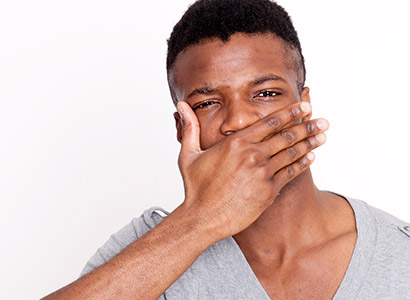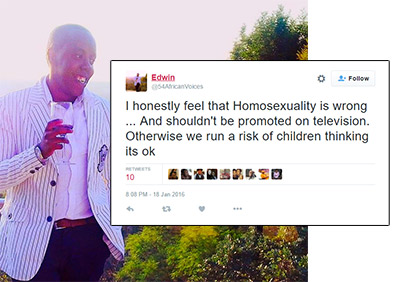The vicious silence of our loved ones
 Throughout history, humanity has perfected the skill of oppressing certain demographics of his/her fellow human. Each generation seems to inherit a compulsive desire to dominate. This need to control others cuts across racial, gender and class structures.
Throughout history, humanity has perfected the skill of oppressing certain demographics of his/her fellow human. Each generation seems to inherit a compulsive desire to dominate. This need to control others cuts across racial, gender and class structures.
For the past 500 years, black people have struggled to attain political freedom. Today, most black people have immersed themselves or at least lent their allegiances towards the greater task of achieving economic emancipation. Yet, you would be mistaken to think that we stand united in our desire to accomplish a higher good for all.
Instead, some among us have committed themselves to waging war against minorities within the same fold. In the past week, for example, MTV presenter Moshe Ndiki became a victim of a verbal assault by a certain Edwin Mbugua on social media. While many homosexual men and women showed solidarity with Ndiki through the hash tag #HomophobiaMustFall, the incident revealed the alarming level of hate and danger faced by gay people in our communities.
Homosexual individuals often lead isolated lives within compartments constructed to exalt society’s heteronormative beliefs. And so, Mbugua’s debate about whether homosexuality is right or wrong, a biological event or a simple choice further perpetuates a seeming need for heterosexual validation.
By dissecting Mbugua’s comments we see that he infringed on Ndiki’s constitutional right to human dignity, equality and freedom of trade, occupation and profession. He also affirmed that heteronormative practice of aggressively attacking homosexuality as a primary threat to human survival.
We need to ask ourselves how many Mbuguas do we know in the intimate and social spaces we occupy. We then need to examine the hidden danger in the apathy displayed by our loved ones with regards to homophobia. We need to fully understand the language of silence that is being utilised as a means of oppression.
When we fight against homophobia do we just engage strangers on social media or do we also retaliate against those expressions of disdain on the faces of our loved ones? When they fall silent are they passively defending us or quietly agreeing with the norms perpetuated by countless institutions. When they keep silent during our assault, are they basing that silence on the hope that heteronormative aggression will force us to “choose” to be heterosexual, again?

One of Edwin Mbugua’s comments
If the love we share with family, friends and colleagues does not shield us from hate, how do we maintain meaningful relations with them? Separate from the protection provided by the law, we remain vulnerable to hate without the support of our loved ones. Justice seeking and loving individuals should never opt to remain silent when homosexuals are being vilified and demonised in their presence.
We need to ascertain from where bigots like Mbugua continue to derive their boorish confidence. Is that a place where we run the risk of finding some of the people we hold dear to us? All heterosexual people in our lives need to come out of the closet about their beliefs on homosexuality. However unpleasant the outcome, such a demonstration will at least help to determine who is for us and who is against us.
I have learned from personal experience that, for a while, promiscuity and substance abuse succeed in numbing the pain of verbal assault and that it is possible to conceal the evidence of scars etched on our skins from physical assault. But I have not yet succeeded in learning how to deal with the silence of those I’m tied to by the event of my birth.
Their silence towards homophobia eats away at my soul like some rare kind of cancer with no cure. I wear a mask of pretending to be fine with it while they wear a mask of tolerance for who I am. But really, how different is the vicious silence of our loved ones from Mbugua’s verbal attacks?
Leave a Reply